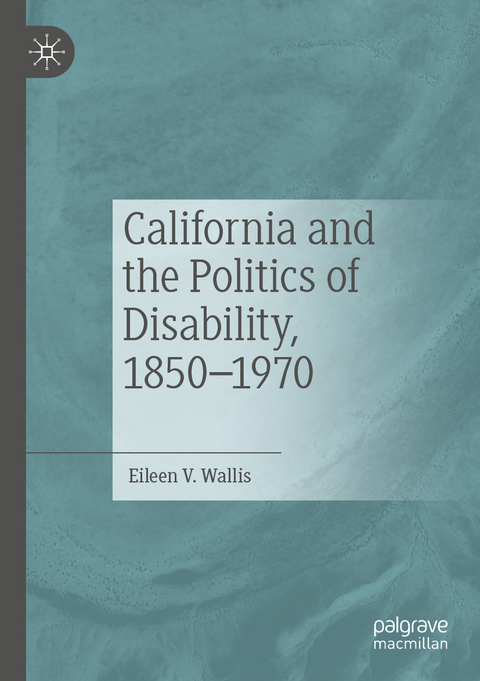
California and the Politics of Disability, 1850–1970
Springer International Publishing (Verlag)
978-3-031-21716-6 (ISBN)
This book explores the political, legal, medical, and social battles that led to the widespread institutionalization of Californians with disabilities from the gold rush to the 1970s. By the early twentieth century, most American states had specialized facilities dedicated to both the care and the control of individuals with disabilities. Institutions reflect the lived historical experience of many Americans with disabilities in this era. Yet we know relatively little about how such state institutions fit into specific regional, state, or local contexts west of the Mississippi River; how those contexts shaped how institutions evolved over time; or how regional institutions fit into the USA's contentious history of care and control of Americans with mental and developmental disabilities. This book examines how medical, social, and political arguments that individuals with disabilities needed to be institutionalized became enshrined in state law in California through the creationof a "bureaucracy of disability." Using Los Angeles County as a case study, the book also considers how the friction between state and county policy in turn influenced the treatment of individuals within such facilities. Furthermore, the book tracks how the mission and methods of such institutions evolved over time, culminating in the 1960s with the birth of the disability rights movement and the complete rewriting of California's laws on the treatment and rights of Californians with disabilities. This book is a must-read for those interested in the history of California and the American West and for anyone interested in how the intersections of disability, politics, and activism shaped our historical understanding of life for Americans with disabilities.
Eileen V. Wallis is Professor of History at California Polytechnic State University, Pomona, in Pomona, California, USA. Her research focus is the late nineteenth- and early twentieth-century American West, with a focus on California. She is particularly interested in the intersections of race, gender, disability, and class, and the ways in which those variables interacted with structures of power during the Progressive era.
Chapter 1.Introduction.- Chapter 2."Friendless and Homeless:" The Gold Rush to 1870.- Chapter 3. "A Sin and a Shame:" Regional Institutional Development in the Late 19th Century.- Chapter 4. "Helpless and Delinquent": The Los Angeles Psychopathic Association.- Chapter 5. "The Thankless Task:" Parole, Eugenics; and the Institutionalization of the Addicted.- Chapter 6. "Their Responsibility:" From the Great Depression to the Birth of the Community Clinic.- Chapter 7. "To Promote Mental Health:" The Bureaucracy of Disability at Midcentury.- Chapter 8. "Whistling in the Dark:" California's Politics of Disability Transformed.- Chapter 9. California after the Lanterman-Petris-Short Act.- Conclusion.
| Erscheinungsdatum | 03.04.2024 |
|---|---|
| Zusatzinfo | XIV, 353 p. 10 illus., 4 illus. in color. |
| Verlagsort | Cham |
| Sprache | englisch |
| Maße | 148 x 210 mm |
| Themenwelt | Geisteswissenschaften ► Geschichte ► Regional- / Ländergeschichte |
| Schlagworte | activism • asylums • Deinstitutionalization • disability rights • Eugenics • Great Depression • Impairment • Institutions • mentally ill • multi-racial • physical disability • Progressive Era • Public Policy |
| ISBN-10 | 3-031-21716-0 / 3031217160 |
| ISBN-13 | 978-3-031-21716-6 / 9783031217166 |
| Zustand | Neuware |
| Haben Sie eine Frage zum Produkt? |
aus dem Bereich


